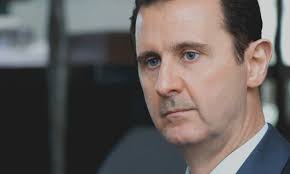
Assad: Master of Chaos

The diplomatic and political power played by international forces on all sides during the ten-year war in Syria
The Syrian crisis owes its origin to the opposition of the local population against the President Bashar-al Assad inheriting power from his father Hafiz-al Assad in March 2011. Although the Pres. captures power by igniting the hope and aspiration among the population regarding pro-democratic political reforms and more economic prosperity in the country. But with Assad coming into power all the promises were been kept at bay and the pace of political and economic reforms was further regressed that gave rise to dissatisfaction among the local population against the regime and taking violent form when Assad showed no mercy in quelling the pro-democratic reform voices.
The situation worsened when Assad used armed forces in subduing the pro-democracy voices as the regime has been accused time and again of using even chemical weapons against its own people.
The pro-democracy protest under the banner of ‘Arab Spring’ emanates from Tunisia and Egypt and later reached the borders of Syria, but the continuous failure on the part of the regime to fulfil the political and economic promises resulted in this persistent civil war in Syria.
The regime is justifying its rule and use of armed tactics in its endeavour to quash these pro-democratic reforms on the pretext of protecting Syrian culture and ideology from getting diluted with western ideas. It projects the pro-democracy protest as a tool used by USA and Israel to replace Pres. Assad and with a pro-western leader who acts as demo-President.
Syria has also become a fertile ground for the eruption of sectarian conflict as the Pres. Assad belongs to the Shia sect whereas most of the opposition belongs to the Sunni sect.
Regional groups operating in Syria
The Syrian civil war can be termed as multi-party and multi-facet turmoil fought between various factions operating in the country for their own personal interest to a large extent.
Various groups operating on the ground in Syria are-
- Syrian Arab Republic and Syrian Armed Forces which is in support of the Assad regime;
- Syrian Interim Government, an alliance of pro-democratic, nationalist opposition parties;
- Syrian Salvation Government, a coalition of Sunni Islamist rebel groups;
- The autonomous territory of Rojava, whose armed wing is the mixed Kurdish-Arab Syrian Democratic Forces;
- Salafi-jihadist organisations like al-Qaeda affiliated al-Nusra Front and ISIL.
Global intervention in the Syrian crisis
Various countries like Russia, the USA, Iran and Turkey, either were directly involved in the conflict or extended both overt and covert support to different regional groups to extract maximum gain from the conflict.
Russia, Iran and Hezbollah were extending military support to the Syrian Arab Republic and Syrian Armed Forces. Russia had been conducting air strikes and also operating ground troops since 2015 to quell the armed rebellion against the Assad regime.
A USA-led international coalition established in 2014 has mandated itself to counter and demolish the operations of ISIL from Syrian soil but in disguise has been operating also against Government and pro-Government targets. Since 2015, the USA also extended financial, logistical and armed support to the Autonomous Administration of North and East Syria and its military wing, the Syrian Democratic Front (SDF).
Turkey has been fighting against SDF, ISIL and the Syrian regime since 2016 but has proactively assisted the Syrian opposition and currently it has occupied a large area of North Western Syria while engaging itself in the ground armed battles.
Between 2012 and 2017, Lebanon has been a new nettle ground for the pro and against Assad regime militants. Israel on the other hand, to protect its interest has been repetitively active in exchanging fires and carrying out armed operations against Hezbollah and Iranian forces.
The Syrian war has resulted in the deaths of millions and led many to leave the country which in turn also created a refugee crisis in neighbouring countries like Lebanon, Jordan and Turkey as well as far as the European continent.
The war has seen innumerable incidents of Human Rights violations for which blaming one faction or group is not justifiable. The burden of failure has to be bored by international organisations like United Nations as well where the countries have failed to take bold decisions on the protection of lives and leading to the crisis worsening.
Although the threat of armed terrorism like al-Qaeda and ISIL has been diminished to a large extent in politico-economic terms, the country has been pushed back 100 years in its effort for socio-economic development.
In addition to the civil crisis, the country has also faced the turmoil of natural hazards as the country was hit by one of the worst earthquakes that claimed thousands of lives and millions worth of infrastructure.
The only thing that matters today for Syria is the humanitarian assistance from the global country that only can help it to again stand on its feet and strive to remake itself economically and politically, and for that, the assistance from the Assad regime is sine quo non.








